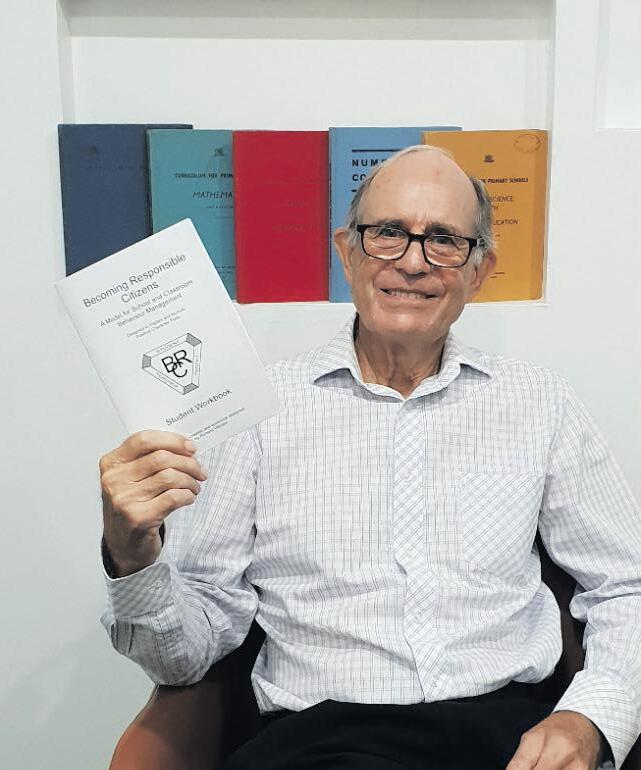
2 minute read
Playing worthwhile games in the classroom
By Samantha Elley
Richard Warden is a creative problem solver.
The retired teacher, now living in Bonalbo, has nearly three decades of teaching experience and six years in family counselling, where he has created many useful resources for teachers in the classroom.
“I had tried lots of different schemes,” he said.
“I saw that there should be a way of being able to manage the children (in the classroom) without raising your voice, or threatening or keeping them in, or giving them extra work.”
With this in mind, Richard used his creative methods and items from Lost and Found to set up some social training, by auctioning off the unclaimed items.
“At that time I had a scheme working…and this dealt with paying the children to come to school, $2 a week,” he said.
“I had paper cut out coins with a stamp on the back so they couldn’t photocopy them.
“I’d reward them for getting their targets in spelling and behaviour.
“The more money they had, the more money they could use in the auction.”
Richard also rewarded the class in total where they would all receive “money”.
“We had a book and had the columns, teaching them a bit of book-keeping with debits and credits,” he said.
“I had to initial every deposit.”
One area that he saw a marked improvement through the scheme was in the weekly spelling tests he held.
“I found that the spelling mistakes were dropping down,” Richard said.
Richard would work out the average number of mistakes across the class, assigned handicaps to each of the children so there was a level playing feld.
“If they got their handicap they got ten cents, even if they made mistakes, as it was an improvement on what they were doing,” he said.
Then came the day when, across the class, there were no spelling mistakes at all.
“I saw that that was working well with money but we needed something more than that,” he said. “What the kids needed most was character development.”
So again, Richard put into a practice a creative solution, by introducing the ‘Becoming Responsible Citizens’ booklet, with the subtitle ‘A Model for School and Classroom Behaviour Management.’
“I needed to look at homework, I needed to look at behaviour in the classroom and I needed to have a place where I can reward kids for what they are doing,” he said.
“Kids appreciate a commendation far more than a little trinket or even a lolly.
“They’d much rather parents say they are proud than buying them something.”
The booklet showed different faces from smiley to sad and this would be flled in according to the child’s achievements, or lack thereof.
Parents had to sign the booklet each week.
“I’d say to the parents, all you have to do if your child is doing well, or improving on not doing well, commend them,” Richard said.
“It shows how responsibility comes in, honesty comes in, attendance comes in and reliability, cooperation etc.”
In one case, a parent approached Richard and asked what he was doing with her son in the classroom, as he was cleaning up his room and being so much nicer at home.
Richard has continued with many other resources that he said have shown results in the classroom and has shared them on his website betterhomesandschools. com free of charge.
Richard has more resources coming up where he would be willing to provide more information and even run seminars for teachers and parents for both school and home









